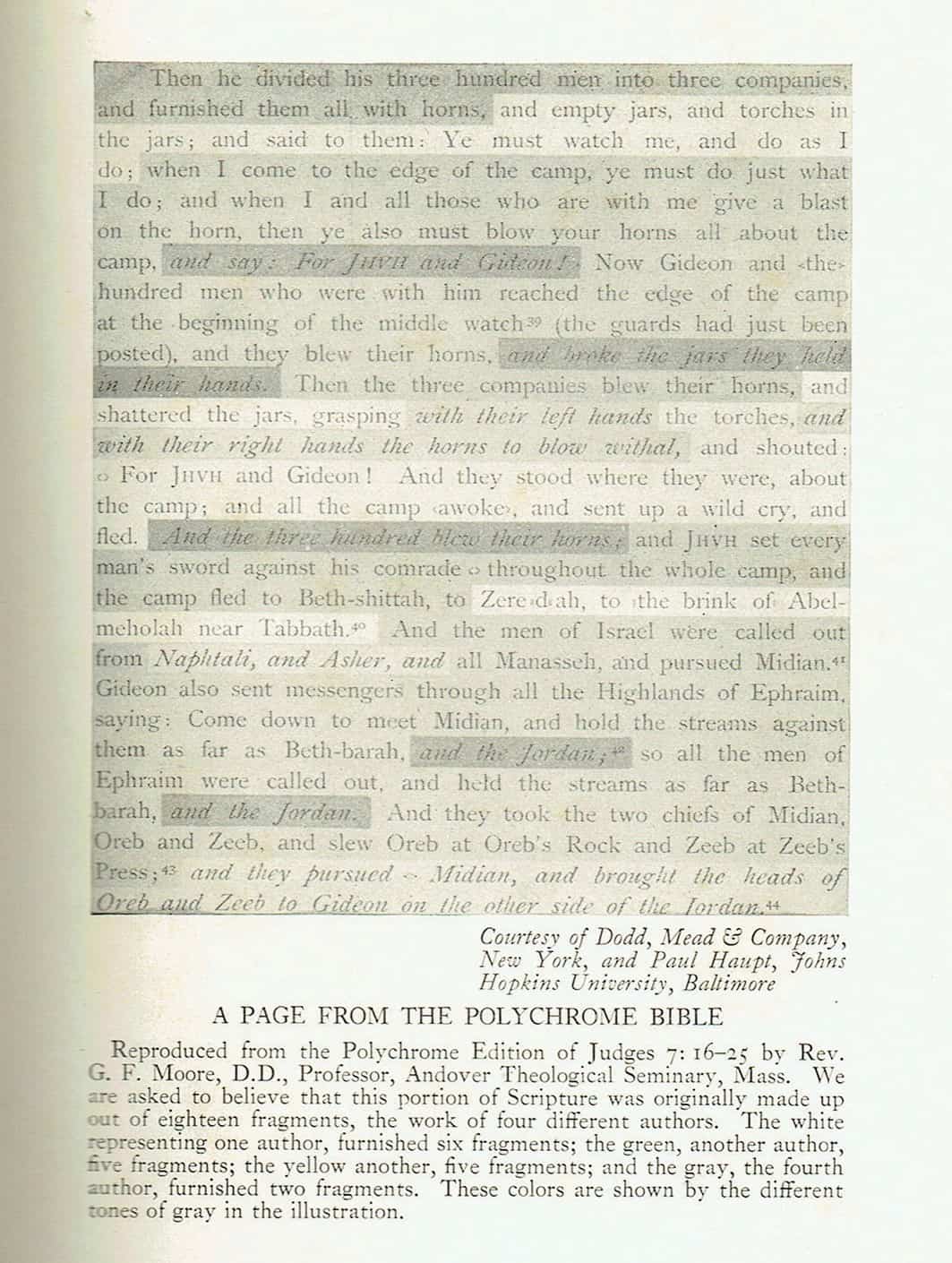The Bible is a unique book. It is the oldest book ever written. Nothing comes even near the Bible for antiquity. The records kept and retained in the pages of the Bible go back 6000 years whereas the oldest religious book from pagan religions date to only about 800 BC or 2800 years. “The Vedas are a large body of Hindu texts originating in ancient India, with its Samhita and Brahmanas complete before about 800 BCE. Composed in Vedic Sanskrit hymns, the texts constitute the oldest layer of Sanskrit literature and the oldest scriptures of Hinduism.”
The most ancient pagan religious books have songs and prayers to the gods they worship but the Bible is a literal, historical account of the origin of the universe, the world with its vegetable and animal life and of the human race. It gives locations of events, the names of individuals, and the times when events occurred. In short, the Bible is a factual, historical record of the world and has prophecies fulfilled and yet to be fulfilled.
Recent holy books produced by heathen religions and cults quote the Bible and in so doing, acknowledge the antiquity of the Bible. For example: The Muslim Koran was completed by Mohammed before he died in 632AD and includes statements about Biblical characters such as Abraham and Jesus. The Book of Morman was not written by Joseph Smith until 1830.
There are historical records from the Middle East on clay tablets and graven in stone dating back to about 1700BC and these are located in the Middle East where the Bible says civilization began; they verify the main elements of Biblical history such as the global flood in Noah’s day.
Prehistoric history assumes men were here before there was writing or any records. We there was writing in Adam’s day and there was no prehistoric period. Even Professor Breasted whose ancient history book is a textbook for University students, agrees that the historic period began in the Middle East between 3000 and 4000 BC. The Bible places the creation of Adam a little more than 4000BC.
The Bible claims to be the words of God written down by prophets; men chosen by God. The Jewish nation was the custodian of the written records and has preserved them meticulously. Prophets were chosen from the nation of Israel both in the New Testament and Old Testament eras.
What advantage then hath the Jew? or what profit is there of circumcision? Much every way: chiefly, because that unto them were committed the oracles (utterances) of God (Romans 3:1-2).
God promised to preserve His Word saying, “Heaven and earth shall pass away but My words shall never pass away” (Matthew 24:31) and “For ever, O LORD, thy word is settled in heaven.” (Psalm 119:89).
Many attacks have been levelled at the Bible
After the Reformation, the Bible became available to the common man and German rationalists attacked it, branding it as unreliable and full of error. The Polychrome Bible, edited by Paul Haupt, was produced claiming that Bible authors did not exist but instead, the Bible was written by a great number of editors who gathered fragments of stories and composed a continuous record from many myths and legends.
The Polychrome (many coloured) Bible (About 1900) claimed different authors named J- Jehovah, E-Elohim, D-(Redactors/editors), P-Priests. Some verses they claimed, were the work of several authors as shown in the page following. Different shaded areas represent different authors.

Other Theologians attacked the Bible in different ways. In 1871 the Anglican Church called for a revision of the King James Bible. Dr Scrivener chaired a committee for ten years to produce the Revised version.
On the committee there were two scholars named Wescott and Hort who produced a different Greek text based on sometimes only one manuscript out of the 4000 available in their time. There are about 5250 now. Dean Burgon indicates their Greek text changed the New Testament Text in 5280 places. Almost all modern translations since have followed Wescott and Hort’s corrupt text. The New King James follows the Received Text on which the KJV is based and which represents 95% of all manuscripts.
Some changes, omissions or passages that are considered doubtful were:
- The last 12 verses of Mark’s Gospel
- Part of the record of the angel disturbing to Pool of Bethesda is Part of verse 3 and all of verse 4. But verse 7 makes no sense unless verse 3 and 4 are there.
- John 7:53 and 8:1-11 are treated as
- Luke 22:43-44 doubted, likewise Luke 23:34.
- The “only begotten” is cut out in John 1:14; 1:18; 3:16,18.
- Acts 13:33 13:33 “God hath fulfilled the same unto us their children, in that he hath raised up Jesus again; as it is also written in the second psalm, Thou art my Son, this day have I begotten thee.” This is changed to “You are my Son today I have become your Father”
- Hebrews 1:5 “today I have become your Father”
- Hebrews 1:7 “He maketh His angels spirits” is changed to “He makes his angels winds”
Many passages have a footnote saying “the best manuscripts omit…” Dean Burgon shows that the so-called “best manuscripts” are actually Codex Vaticanus and Siniaticus which are the worst and contradict each other!
Dr Forster spent 7 years translating the NIV and never realized it was using a corrupt text until he had to translate. He later translated for the NKJV from the true Greek text (Received Text) and now preaches from the KJV.
Another problem with modern translations is the views held by the translator. Many refuse to accept “verbal inspiration” of the original manuscripts – Hebrew in Old Testament and Greek in the New Testament. These men believe the thoughts are inspired but not the words. They believe that men chose the words but God gave the thoughts.
This is an impossibility. We cannot think without words. We can’t have a sum without numbers nor a sentence without words.
This allows them to claim errors in the Bible due to the poor choice of words by fallible men. But did God leave the words for men to decide to write down His thoughts or did He give every word infallibly to the Bible writers? The Bible claims to be verbally inspired and that every word is therefore preserved in the vast number of manuscripts.
The following scriptures assert the verbal inspiration of God’s Word:
- ”ALL scripture is given by inspiration of God, and is profitable for doctrine, for reproof, for correction, for instruction in ”(2 Timothy 3:16 )
- Jeremiah 26:2. Jeremiah was told “diminish not a word”
- Jeremiah 36 – Jeremiah was told to write down all the “words” that God spoke to him. When Jehoiakim cut the scroll and burned it Jeremiah wrote all the “words” of the first scroll and many more. When Baruch, the scribe was asked how he wrote the scroll he said “he pronounced all these words unto me with his mouth, and I wrote then with ink in the book” (Jeremiah 36:18). That’s verbal inspiration.
- Exodus 4:16. God gave the words to speak to Moses and he got Aaron to speak them to Pharaoh. God said, “He shall be to thee instead of a mouth and thou shalt be to him instead of God”.
- Psalm 12:6-7 states that “the words of the Lord are pure words…as silver tried in a furnace of earth; purified seven ”…”Thou wilt keep them, O Lord, thou shalt preserve them…for ever.” Scripture is preserved.Psalm 119:89 “For ever, O LORD, thy word is settled in heaven.”
- “Knowing this first, that no prophecy of the scripture is of any private interpretation. For the prophecy came not in old time by the will of man: but holy men of God spake as they were moved by the Holy Ghost” (2 Peter 1:20-21).Holy men of God were moved by the Holy Spirit – The word translated “moved” is also translated “driven” in Acts 27:17. The ship was “driven” by, and at the mercy of the storm. It was controlled by the storm. Bible writers were driven/controlled by the Holy Spirit.
- Revelation 22:18-19 warns us not to add to the “words” or take away any “words” for the consequences are very serious. Charismatics beware!
- The Book of Ezekiel has 48 chapters and 50 times Ezekiel states:“The word of the LORD came unto me saying…”
- “The prophet that hath a dream, let him tell a dream; and he that hath my word, let him speak my word What is the chaff to the wheat? saith the LORD.” (Jeremiah 23:28).

